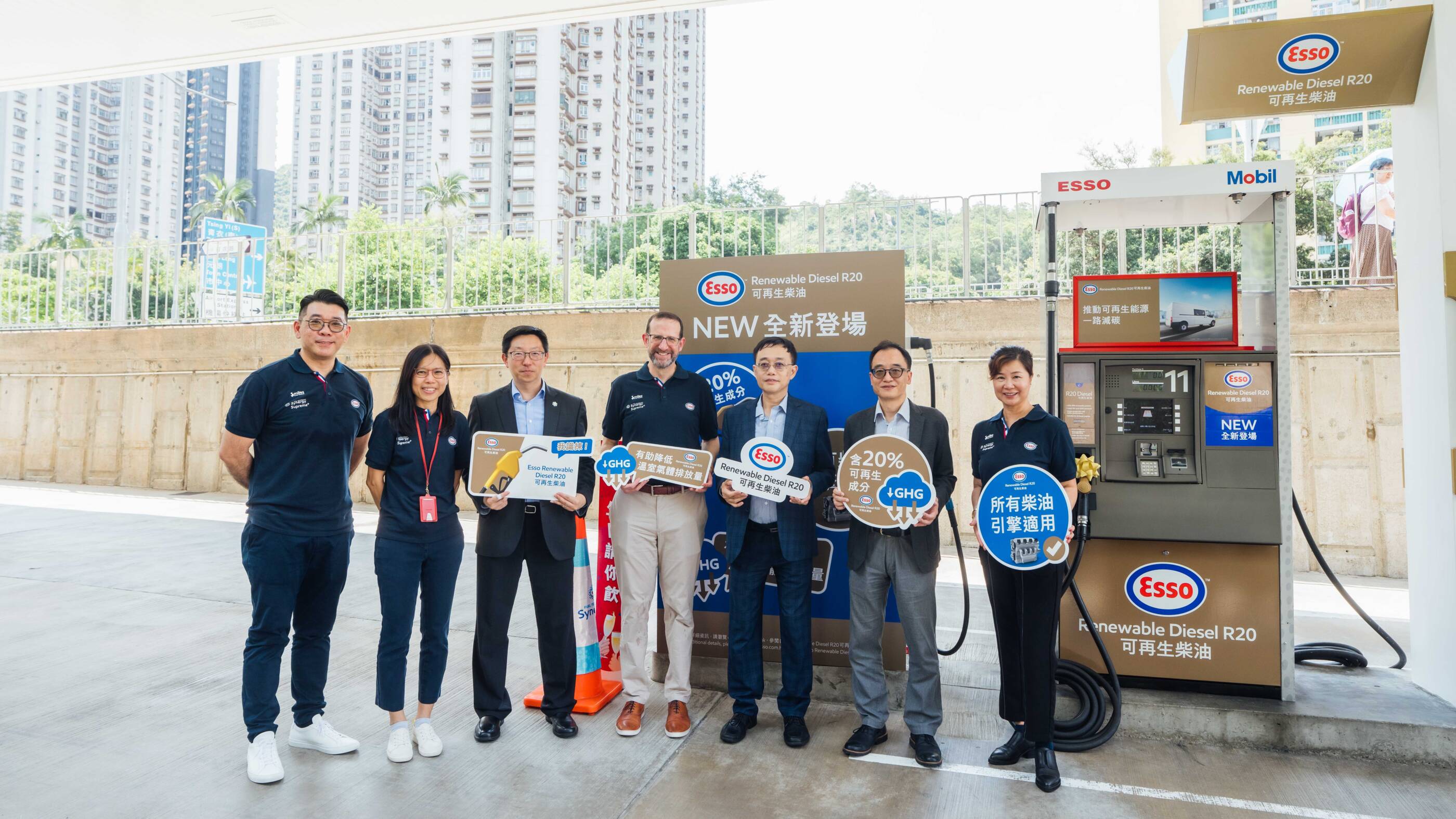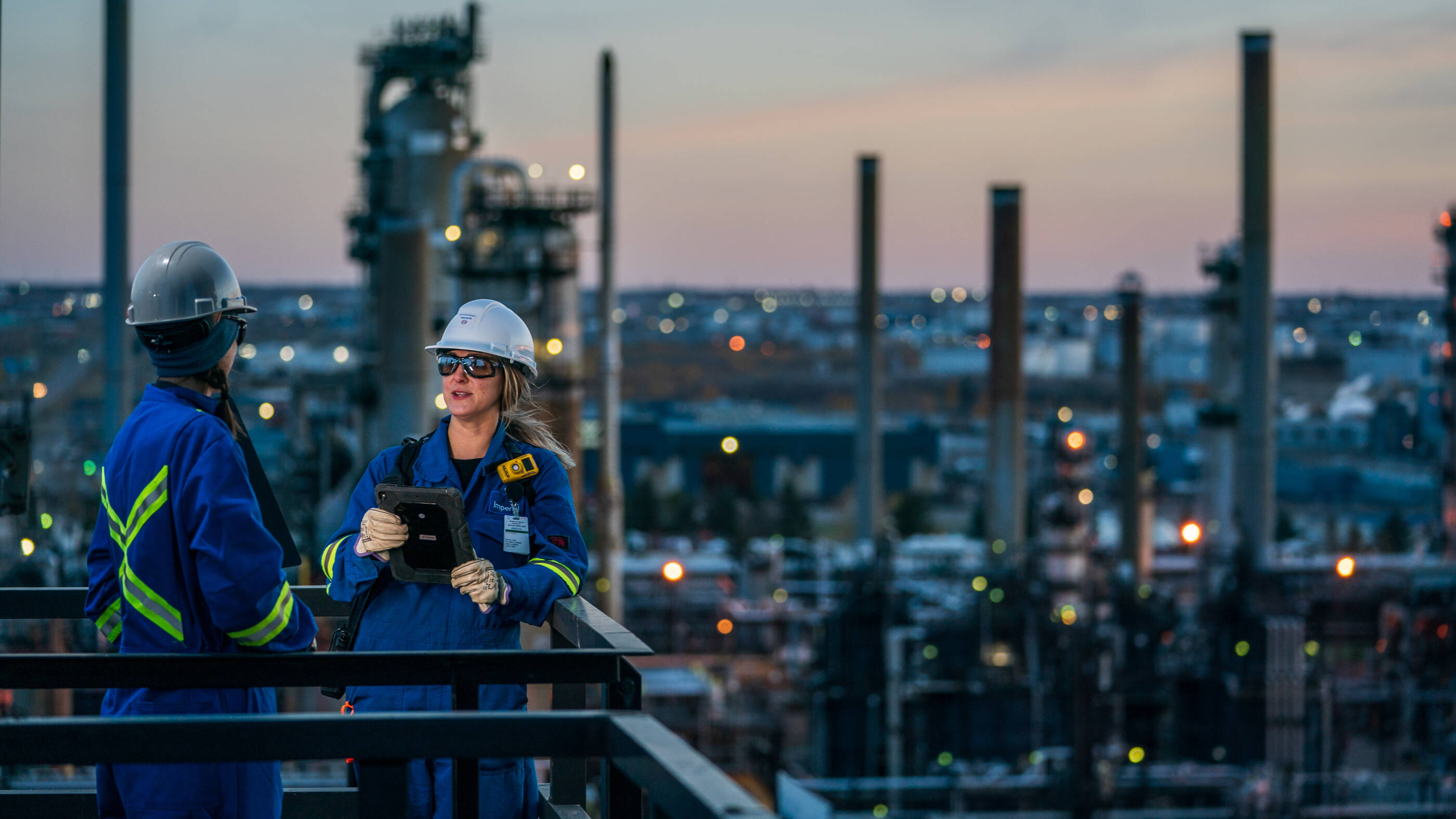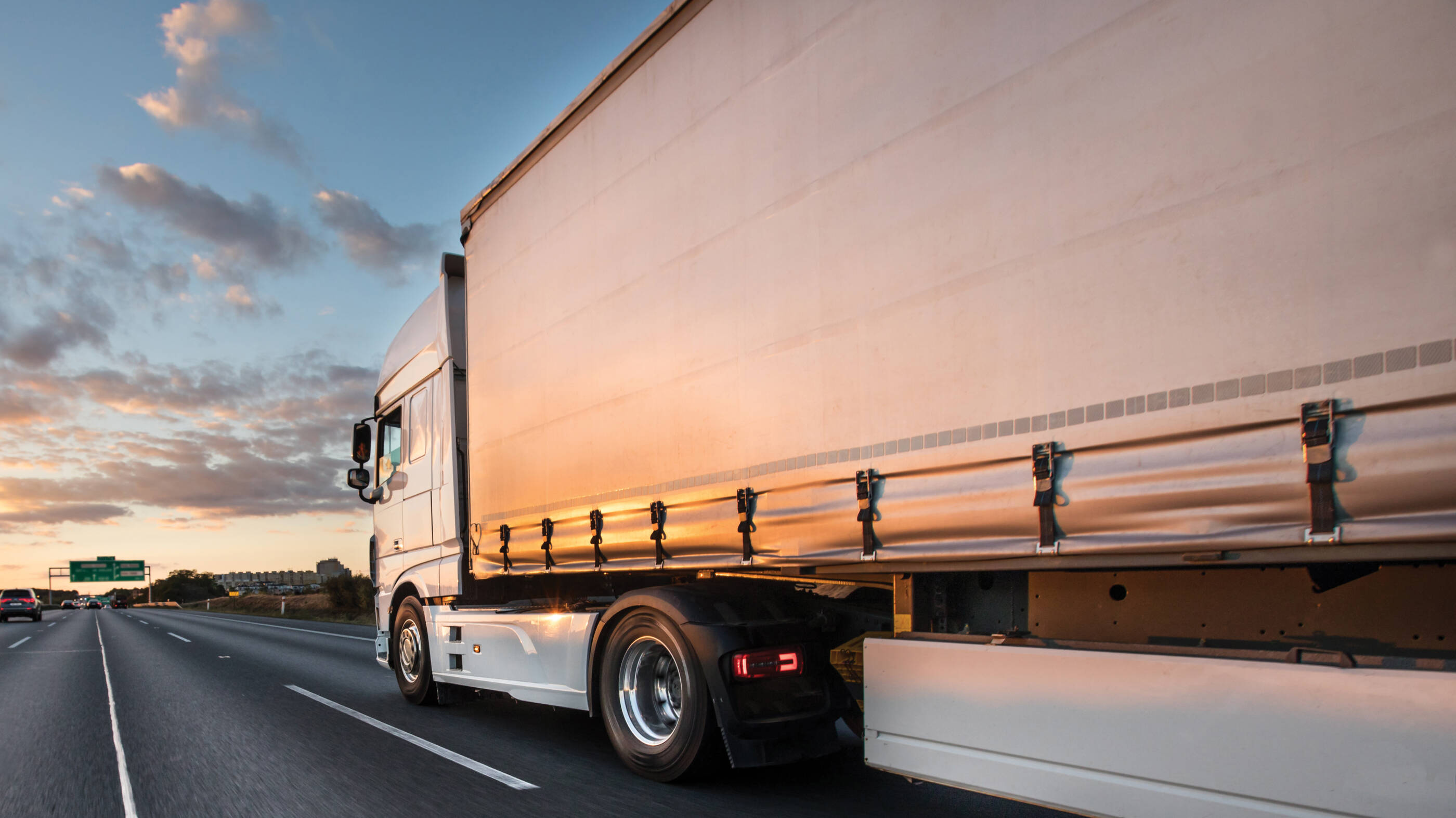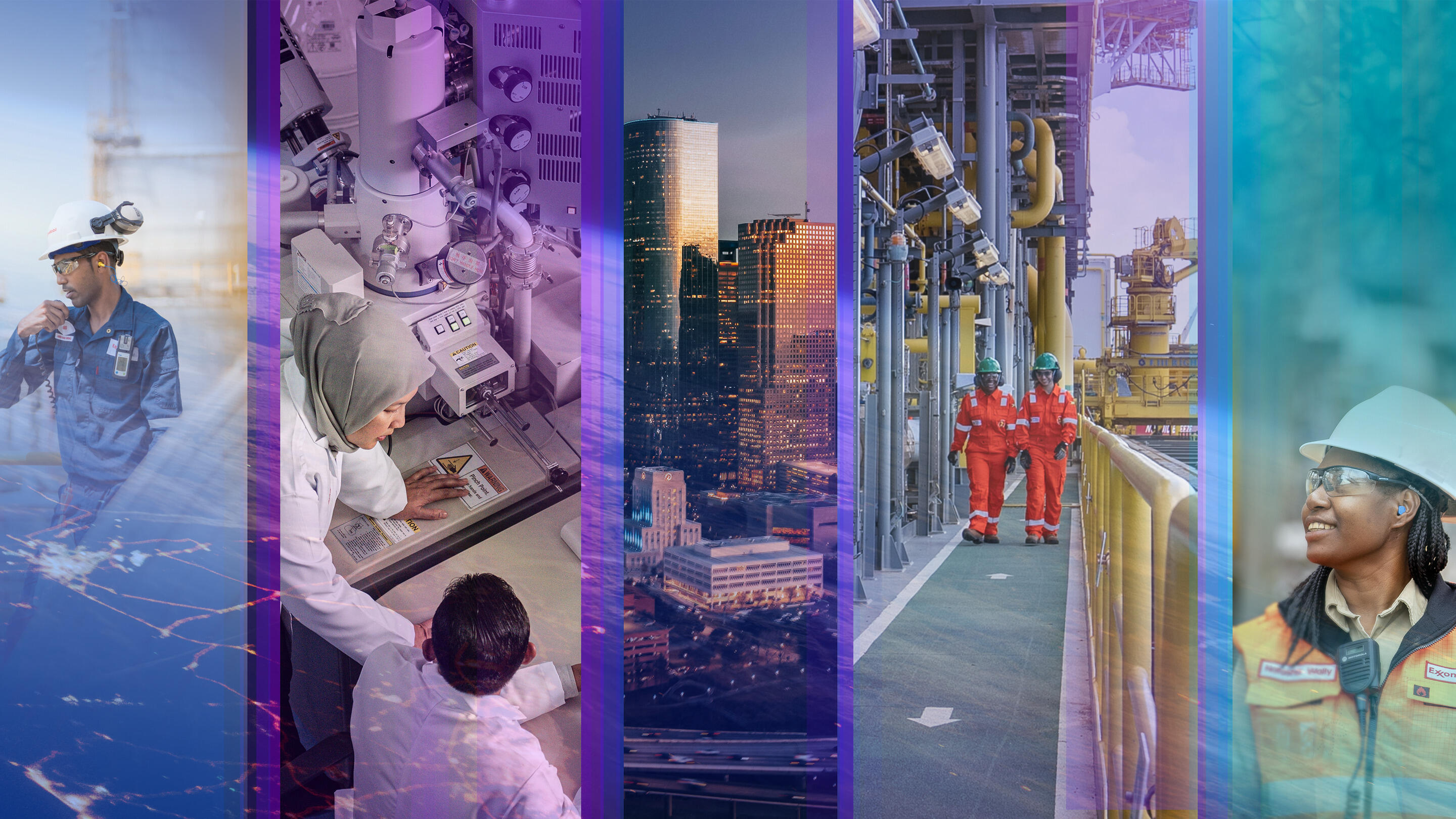Trucking
On the road to lower GHG emissions
Road transportation is essential. Whether moving people or goods, it supports society and economic growth.
Reducing greenhouse gas (GHG) emissions from commercial fleets is a significant challenge. Commercial transportation is complex, and there’s no one-size-fits-all solution.
For fleet managers and the transportation industry, our white paper, Moving forward: planning the journey to lower emission commercial diesel fleets, provides key insights to efficiently and effectively transition to lower-emission fuels.
Optimizing fleet productivity and efficiency
Optimizing the existing diesel fleet’s productivity and efficiency represents an important opportunity to reduce costs and emissions per ton mile.1
Additized diesel is one fuel solution that can help fleets meet this opportunity. Deposits build up in injection systems using unadditized diesel, impacting fuel efficiency and engine out emissions (including NOx & particulates) over time. The right detergent-based technology can help clean up these deposits.
ExxonMobil’s Diesel Efficient™ fuel marketed under Esso, Mobil and Exxon brands, and available in many markets globally, incorporates a terminal-additized detergent aimed at improving one or more aspects of fuel performance, such as improved fuel.2
Innovate and invest in a lower-emission future
With construction now complete, ExxonMobil majority-owned affiliate, Imperial Oil Limited’s Strathcona Refinery near Edmonton, Canada, is producing renewable diesel.
This cutting-edge facility has the capacity to produce up to 20,000 barrels a day by using bio-feedstock to produce renewable diesel, which is a lower-GHG emission fuel.8
Lower-emission fuels
Explore more

ExxonMobil launches the first renewable diesel for public road use in Hong Kong
2 min read
•
Strathcona: The road to renewable fuel

Fueling the future: Explore our lower emission fueling options for commercial fleets
3 min read
•
Co-processing: Making tomorrow’s fuel with today’s facilities
2 min read
•
Expert spotlight: Brianne Kanach - from intern to advancing lower-emission fuels
3 min read
•FOOTNOTES:
1Benefits apply to Exxon, Mobil, or Esso Diesel Efficient™ branded fuel compared to diesel fuel without detergent additive with the same level of renewable content. Actual benefits will vary depending on factors such as vehicle/engine type, driving style, diesel fuel previously used, and other factors. Concentration and availability of our proprietary additive package may vary based upon factors beyond our control. Product offerings and availability vary by region.
2ExxonMobil Global Outlook Our View to 2050 (2023). Energy demand trends | ExxonMobil
3IEA CO2 Emissions in 2022 Report, IEA Tracking Transport Tracking 2023.
4Road freight activity forecast 2050 | Statista
5ExxonMobil commissioned research by Frost & Sullivan of 157 fleets with 50+ heavy-duty trucks across UK, Germany, Benelux, France, Norway and Italy – 4Q23-1Q24.
6For instance B5 is common in North America and B7 in the EAME region. Fleets should check with the engine manufacturer before using biodiesel. The exact GHG emissions reduction potential of biodiesel/conventional diesel blends depends on several factors, including the FAME feedstock, production method, and blend percentage. Models recognized by policymakers vary by jurisdiction, but, for illustration, under the European Renewable Energy Directive, on a well to wheels basis, rapeseed-based FAME typically is estimated to have approximately half the carbon intensity of conventional diesel. This depends on the feedstock. For example, FAME from used cooking oil can have an estimated carbon intensity reduction, well to wheels, of greater than 80%. See Renewable Energy Directive 2018/2001/EU Annex V.
7Fleets should check with the engine manufacturer before using renewable diesel. Lifecycle GHG emission calculations and estimates vary between models and across jurisdictions but, by way of illustration, EU’s RED II (Renewable Energy Directive II) assign to renewable diesel from used cooking oil a default carbon intensity reduction vs conventional diesel of 83% and a typical reduction of 87%.
8Optimizing current production based on product demand, compliance requirements, and supplier capabilities for both the renewable feedstock and also the required hydrogen for processing.


